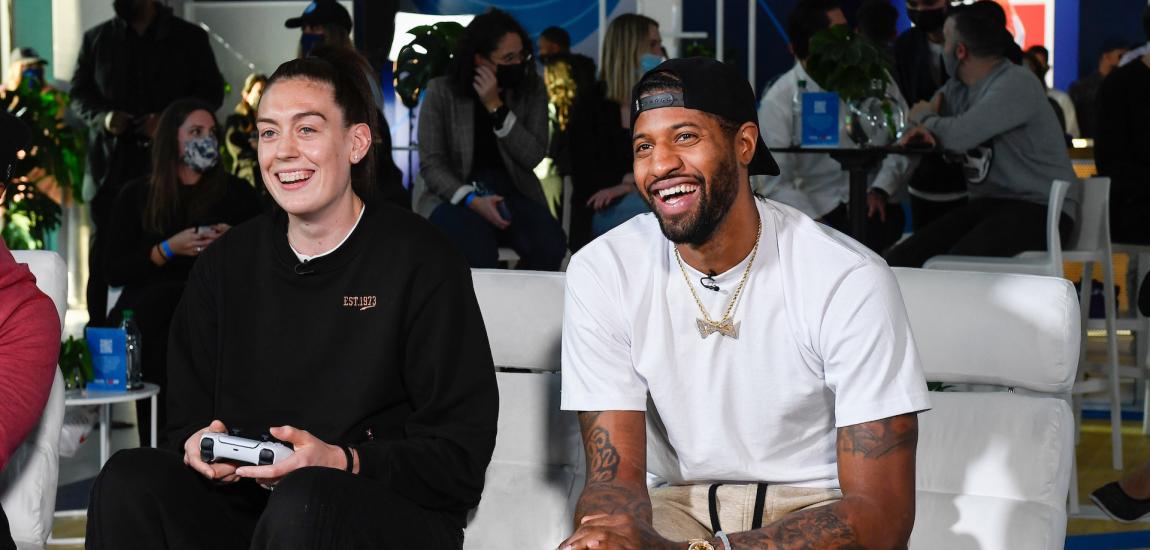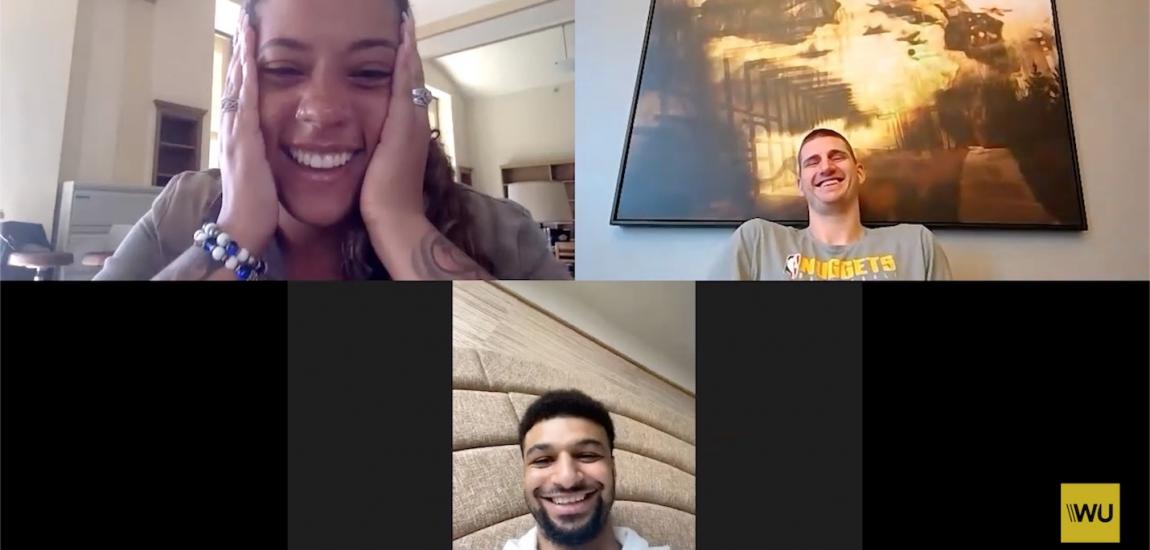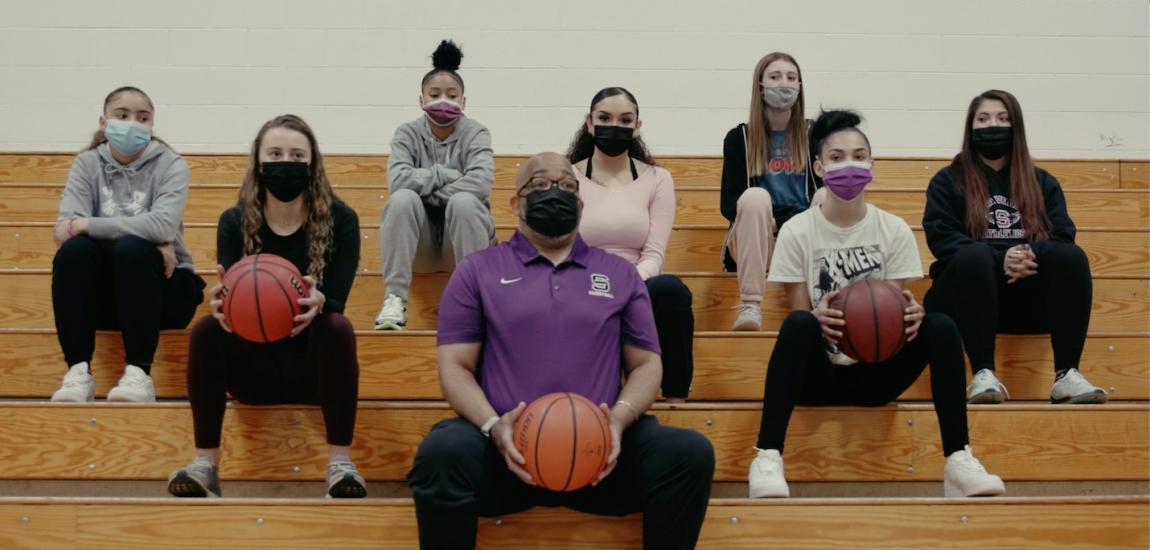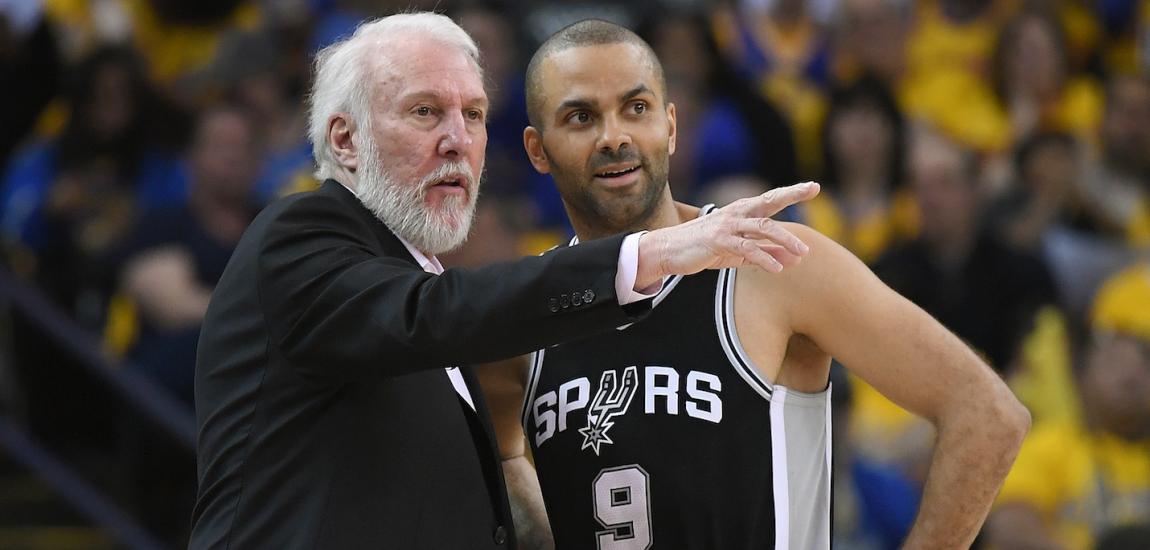
An hour before every game, Herman Reid, Jr. ("J.R.") is on the basketball court sweating as hard as he did when he played in the NBA; demonstrating his low post moves, and schooling those willing enough to take him on. After spinning off for an uncontested basket and making it look easy, Reid stops the action. "Get your hands up, stay vertical. Don't ever give the refs an opportunity to blow the whistle," Reid said. "Now re-set, and run it again."
A few minutes later, in the locker room, Reid continued to impart his wisdom. "Do you guys want this? Do you guys want this? Then let's go get it," Reid said. "When you head out onto that floor, stay focused, you're prepared; you're ready."
Later that week, after another intense basketball workout, Reid was sitting quietly behind his desk making some last minute preparations when he heard "in 3-2-1 we're live." Now, under a different set of lights, and facing only the camera, Reid began a three minute segment before a live television audience, breaking down ACC basketball.
"Whether you're under the lights of an arena, or under the lights in a television studio, you're a professional and you have to be prepared," Reid said. "I'm always confident heading into a game or a studio session because I put in the work and learn from the best."
By the time Reid entered the 8th grade, it was apparent to everyone in Virginia Beach, Va., that he was destined for athletic greatness. Already standing 6-foot-5 and weighing 200 pounds, Reid towered above his teammates, and intimidated his opponents. By then, he had caught the eye of coaches from all over the country and received his first letter of interest from a college.
What may surprise most is that the first college letter Reid ever received was from Virginia Tech, expressing interest in Reid’s football prowess. In the eighth grade, Reid was dominant at tight end, defensive end and even safety. The son of a former NFL player, Reid’s father Herman Reid, Sr., played for the Baltimore Colts in the mid-60's, Reid’s first love was football.
“I loved to hit. I loved the contact,” Reid said, “And I was good at it.”
Though, despite his abilities and love for football, Reid’s father knew early that Reid was destined to be a basketball player. As a coach and a teacher, Herman was able to work with Reid, and teach him the fundamentals of sports and the importance of an education. By the time Reid entered the ninth grade, he could have started on any area high school team. The problem was, Kempsville high school in Virginia Beach was grades 10-12, which meant Reid had to play for his middle school team.
Once Reid reached the tenth grade, he started every game for his high school varsity team, and made First team All-State his sophomore, junior and senior years. His last year at Kempsville, Reid enjoyed McDonald’s High School All-American honors, and was ranked as one of the top recruits nationally.
Highly touted from an early age, Reid attended numerous and prestigious basketball camps, including Dean Smith's camp at the University of North Carolina at Chapel Hill. So excited about Reid's game was Coach Smith, that he was the first to send Reid letters of interest in basketball.

In those days, highly sought after high school players held their own summer camps, and well known coaches, such as Coach Smith, agreed to participate. Given that Coach Smith assisted with Reid’s basketball camp, it was natural for everyone to assume Reid was headed to UNC. What they did not know however, was that Reid himself had yet to decide where he would play college basketball.
During his sophomore year in high school, shortly after getting his driver's license, Herman told Reid that it looked like he was headed to college on an athletic scholarship, and that the money saved for his education would be used to buy him a car. Reid and his father headed down to the local car lot and purchased a Carolina Blue Sunbird. When he got home, everyone was all over Reid for choosing UNC. To this day when he tells that story, Reid laughs.
"People think I bought that car as an ode to UNC,” Reid said. "Truth is, I bought that car because it was the only one on the lot in my price range. It was our little secret, until now."
After enjoying an unprecedented high school career, Reid enrolled at Chapel Hill anyway. He started every game that he played in college, and at the time, was only the fifth freshman ever to start in the history of UNC. From 1987-1989, Reid was a dominant force under the basket and off the court. Kids all over the country, particularly in the mid-Atlantic, were not only emulating Reid’s post moves, but also his iconic haircut.
After three years of high level play in one of the strongest conferences in the country, Coach Smith called Reid into his office.
"Coach Smith told me that there was nothing left for me to do at UNC," Reid said. "He said if I was his own son, he'd tell me to leave college and head to the NBA, so I did."
There was one requirement to Reid leaving college. Coach Smith asked that all of his early entry players write into their contracts a bonus for earning a college degree.
"I was a student; the son of two school teachers," Reid said. "I was going to get my degree no matter what, but I always appreciated Coach Smith looking out for me like that."
After being drafted fifth overall by the expansion Charlotte Hornets, Reid enjoyed a 14-year career in the NBA (and overseas), that saw him play for a number of teams including the Los Angeles Lakers, New York Knicks and Milwaukee Bucks.
"I loved everywhere I played," Reid said. "But had I stayed in Milwaukee more than a few years, I would have weighed more than 400 pounds, with all that good custard they eat up there.
After finishing up his career in 2004 overseas, Reid knew what he wanted to do next, and he was prepared for the long road ahead.
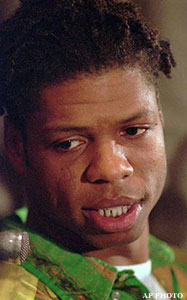
“When players retire from professional basketball, they want to do one of two things. They either want to go into broadcasting, or coaching,” Reid said. "There are a thousand ex-players out there who think that just because they played professional basketball, that they can just go and get a job coaching or broadcasting, but that's just not the case."
Wisely, Reid fulfilled Coach Smith’s request, and earned a Bachelor of Arts in broadcast journalism from UNC. He knew he wanted to go into coaching and broadcasting.
"It was just a matter of putting in the time, just like in basketball, and eventually something would come together," he said.
Unlike a lot of players who are nervous about their post-retirement lives, Reid was excited. Embarking on his new career, Reid decided to take to coaching like any other would-be coach, by doing the little things, and starting at the proverbial bottom. Understanding that no basketball program should be perennially relegated to the bottom, Reid was willing to take on any opportunity, as long as he was able to work closely with the next generation of young men, and make a difference in their lives.
Last year, Reid scoured message boards, and basketball insider sites like HoopDirt, and found an opportunity under Coach Kenny Wade at Patrick Henry Community College is Martinsvile, Virginia. For those unfamiliar with Martinsville, it's a nice place. It's also remotely located, and not where many would expect Reid to end up, not even for his first coaching opportunity. The city of Martinsville has a population of 14,635. Reid played in front of crowds twice that size since college. But Reid was hungry and willing to do whatever it took, even if it meant moving to Martinsville.
Having seen the call for a coach in HoopDirt, Reid contacted PHCC Athletic Director Chris Parker.
"Reid called up and said that he was interested in the coaching position, which I thought was great," Parker said. "But I'll never forget how modest he was when he called. He said, 'I've got some basketball experience.'"
Knowing full well just how much “basketball experience” Reid had, Parker and Coach Wade immediately offered Reid a position on the staff. The only problem was, it was a week before the season began, and there was no money in the budget for another coach. Undeterred, Reid packed up his bags, and readied himself to his coaching career.

Not only would Reid be a volunteer coach his first time out, but he was also joining the ultimate underdog program. PHCC, less than ten years into its athletic existence, is a non-scholarship two year school, and is the only non-scholarship school in its conference, which meant they would always be playing against the odds. When Reid arrived at PHCC, surprisingly, his players weren’t in awe.
“Most of them didn’t even know who I was," Reid said. “Which actually made it better because we could go straight to work.”
And straight to work they went.
"PHCC has some good big men, and Reid stepped right in to work with those players,” Chris said. “He’s very humble, and a hard worker; and does a great job of putting everything into perspective."
Head Coach Kenny Wade echoes the sentiments of Chris, and really appreciates how Reid fits in so nicely with the team. That said, Reid has not been able to completely escape his fame. During the Region X D-2 Championship game, “We were up by one at half-time, and as we were walking into the locker room, a lady at the scorer’s table approached Reid,” said Coach Wade. “I assumed she wanted to let us know something about the score, but she actually wanted Reid’s autograph.”
In addition to starting his career as a college basketball coach in 2011, Reid also began providing analysis for the ACC Digital Network. Much like his entry into coaching, Reid had to work hard to earn his opportunity as an analyst.
"I had to go to Charlotte, and audition for the job," he said. "It's one thing to play and understand basketball, but it's entirely different to react to highlights and provide analysis in front of a camera."
Reid’s audition was successful, and he was offered an opportunity to work for the ACC Digital Network.
Since joining the ACC Digital Network, Reid has done extremely well.
"He brings an authentic and unique perspective to ACC fans, as the digital network's lead basketball analyst," said the network's executive producer, Josh Wine.
After this past basketball season came to an end, and Reid’s doubly busy schedule wound down, one might have expected him to enjoy the fruits of his labor, and take some time off. Wrong.

“He was right back in the gym lifting weights and leading by example,” Wade said.
One thing that those who follow Reid on Twitter already know about him is his mantra: "Players are made in the summer." Not just basketball players, but in whatever "game" you are playing. That is why when Reid is not working out on the basketball court in Martinsville, he films a public access show called Game On.
“I just love to do it,” Reid said. “And it gives me another opportunity to sharpen my skills.”
One thing that Reid does do during his “down time” in the summer is remain heavily involved in his basketball camp -- the very camp that he started in high school is run annually in various places on the East Coast. The Hampton Roads Basketball Camp/Carolina Fundamentals Camp, is another way for Reid to give back to his regional community and the basketball community that provided so much for him and his family. In Reid's words, "It's the least I can do."
As Reid enters year two as a coach and analyst, he will undoubtedly sharpen his skills and broaden his understanding of the game he has known and loved his entire life. And much like when he grew from a 6-foot-5, 200 pound kid into a 6-foot-10, 245 pound man, Reid will spend the next many years listening to, and learning from those around him. Only now, Reid has a voice -- a big one, at that -- and opportunity to share his knowledge and wisdom with many fans, and the kids he coaches.
"For me, in many ways, this is much more satisfying than my playing career."
-- William R. "Rob" Sievers is a Partner and Chair of the Sports and Entertainment Law practice group at TaylorWalker PC in Richmond, Va. Follow him on Twitter @SportsEsquire.

